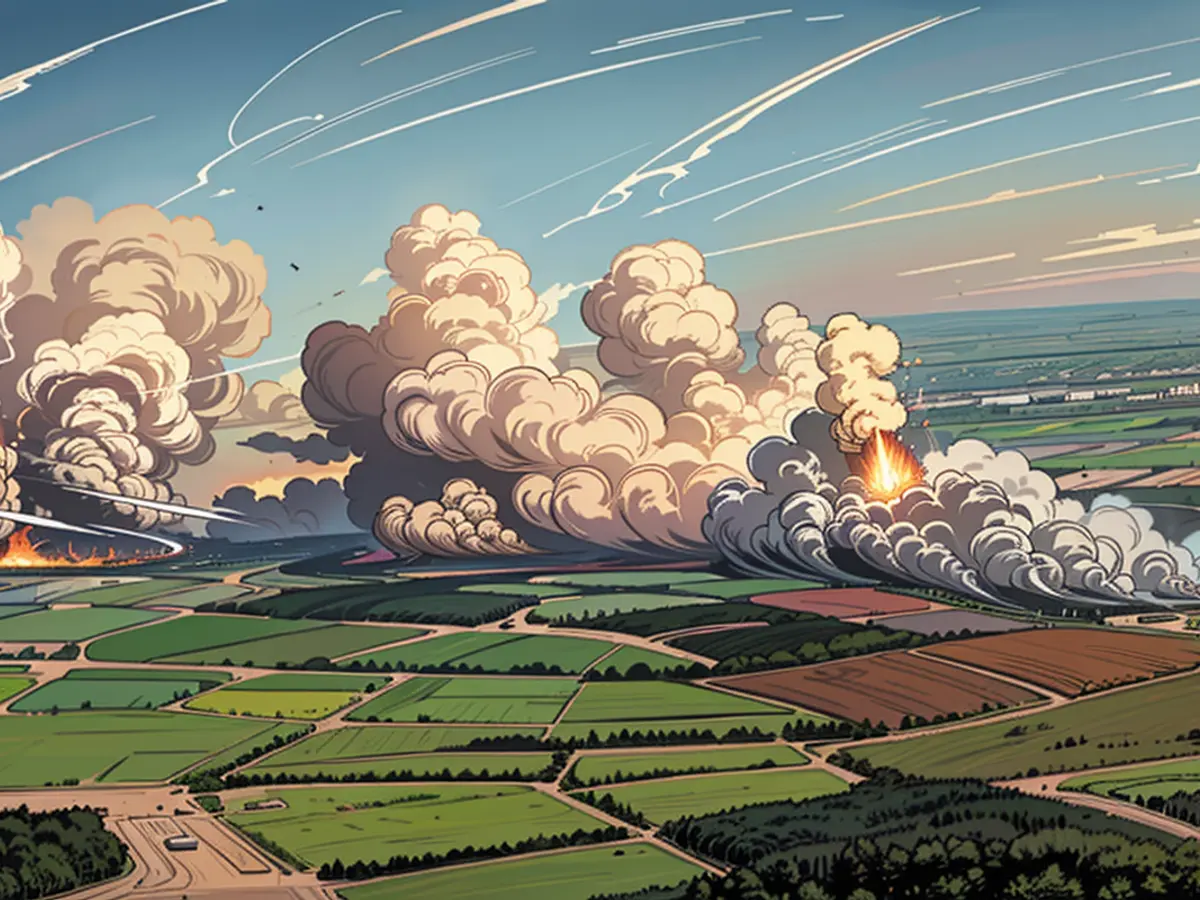After the moor fire in Meppen - The Bundeswehr is resuming full-scale firefighting.
Six years after the peat fire** on the premises of the Wehrtechnische Dienststelle (WTD) 91, the German Armed Forces are resuming full-scale shooting operations from August 1st. The service will be able to fully utilize the entire shooting range, a spokesperson announced.
Following the more than four-week-long fire in the Tinner Dose peat bog, the German Armed Forces presented an improved fire protection concept. Operations were gradually resumed.
Equipment enhanced
The German Armed Forces invested around 15 million euros to improve the equipment of WTD 91. Measures were also taken for nature conservation, including the acquisition of specialized vehicles such as peat and fire-fighting crawlers, a protected excavator, armored recovery vehicles, and reconnaissance drones. Additional wells were dug to better supply the deployment forces with firefighting water.
There is now closer cooperation with the Emsland district and neighboring municipalities, the spokesperson said. During the fire, smoke was so dense that a state of disaster was declared in adjacent communities. Evacuation of two communities was even considered at one point, with smoke plumes visible from satellites and reportedly detected in Hamburg.
Intensified exchange between Armed Forces and district
Today, there is a "short line of communication" between WTD 91 and the district for urgent situations, a spokesperson for the Emsland district said. For example, a crisis management team can be immediately activated from the 24/7 staffed control center.
"In our assessment, there is a more intensive exchange between the district (emergency services) and WTD compared to the time before the peat fire," the spokesperson explained. Towards the end of the year, there will be a large exercise involving the Armed Forces fire brigade, units of the district fire brigade, and the fire brigades of the communities bordering the Armed Forces premises in Sögel, Meppen, Haren, and Lathen.
Mistakes in fire fighting
The fire started on September 3, 2018, following rocket tests. From the "Tiger" helicopter, 70-mm rockets were fired on the training ground over several days, igniting the fire in the exceptionally dry peat. The smoldering fire was finally extinguished on October 10, 2018.
Mistakes were made in fighting the fire, according to a damage analysis by the Ministry of Defense after the fire. One of two fire-fighting crawlers was in repair during the test, and the second broke down during the firefighting operation, causing delays. Rising winds also fanned the flames.
Study on peat bog restoration
Misjudgments by the responsible personnel at the test site also exacerbated the situation. Initially, the seriousness of the situation was not recognized, and the public was not adequately informed. Only belatedly did the service request support from the district and the Technical Relief Agency. At times, there were 1,700 deployment forces from the Armed Forces, civilian fire departments from all of Lower Saxony, and the Technical Relief Agency on site.
The fire also destroyed valuable peatlands. Therefore, a working group for addressing environmental damages after the peat fire (AKAUM) was established, with representatives from the German Armed Forces, the state of Lower Saxony, the district, and the Nature and Biodiversity Conservation Union (NABU). This working group meets several times a year, as stated by the district spokesperson.
The aim is to coordinate the topics of shooting range use, nature conservation, and fire protection as harmoniously as possible. The working group has commissioned a potential study on renaturation. Results are not expected until the next two and a half years.
The German Armed Forces had to consider evacuating two communities due to the dense smoke from the peat fire, as stated in the crisis management discussions. After significant improvements in fire protection measures and equipment, the need for evacuation during future incidents at WTD 91 seems to be minimized.








